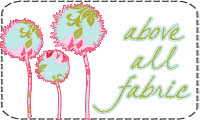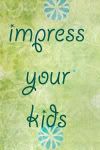 Since my son was about six months old, we've known that something was "off". The first sign was his inability to make eye contact with the person holding him. Then as he reached nine months and was crawling around, he had very limited interest in the typical toys his peers were playing with. He was very interested in watching how gears and wheels moved.
Since my son was about six months old, we've known that something was "off". The first sign was his inability to make eye contact with the person holding him. Then as he reached nine months and was crawling around, he had very limited interest in the typical toys his peers were playing with. He was very interested in watching how gears and wheels moved. At eighteen months when his vocabularly should have been 50+ words and two word sentences, he had a vocabulary of about 20 words which included sounds instead of words for certain things like dog, cat and truck.
When he was about two and a half years old, we got him involved in the Virginia Early Intervention program. He started out with speech therapy once a week as well as physical therapy for his toe walking. Once I put him in some high top shoes, he stopped toe walking on his own so we dropped the physical therapy.
 That fall, he was enrolled in the PDD (preschool for developmental delays) and attended school there for two years. He made such tremendous progress in this environment and I cannot speak highly enough of his teachers there. He progressed from introverted play and not even acknowledging that other kids were near him playing, to parallel play, to interactive play. He still has miles to go with certain sensory processing issues, communication and empathy.
That fall, he was enrolled in the PDD (preschool for developmental delays) and attended school there for two years. He made such tremendous progress in this environment and I cannot speak highly enough of his teachers there. He progressed from introverted play and not even acknowledging that other kids were near him playing, to parallel play, to interactive play. He still has miles to go with certain sensory processing issues, communication and empathy.Over the winter, I started noticing some OCD-like behaviors that had me concerned. Then after an aggressive outburst at a local play area which resulted in him telling me some rather disturbing things, our pediatrician recommend we work with an intensive home therapy group. If he was starting to show signs of OCD, it was crucial that we deal with it immediately. After some time with a therapist, we booked an appointment with a psychologist to get an actual clinical diagnosis for my son.
Turns out that the OCD-like behaviors are part of the autism. Yep. Autism. The doctor labeled it as "high functioning autistic syndrome disorder". As far as the "high functioning" part goes, I'd have to say he's very high functioning with some quirks and delays. I'm not upset with this diagnosis, nor am I surprised by it. I've simply been waiting for someone qualified to finally say the words to me and confirm what I've been trying to prove for years now.
Because he does not have OCD and isn't considered "at risk", he no longer qualifies for services from the intensive home therapy group. He'll continue to receive speech therapy weekly once school starts, but I'm concerned it won't be enough. I met with our county's "community services" organization this morning. Based on the initial interview, they feel he will qualify for therapy with them but it will most likely only be twice a month.
Once again, I'm struggling to find services for my son. Most of the time, I don't even feel qualified to express what I think he needs or the types of therapies that would be beneficial to him. Add to the mix the limited resources available to Medicaid recipients and it's an even smaller pool of options.





1 comment:
You have navigated wonderfully well - pat yourself on the back and have a piece of your favorite chocolate! How fortunate your son is to have you as an advocate on his team. Alas, "therapies" are few within the school system and out in the community. We are looking into "chelation" after (finally) meeting someone who has a child who actually has participated in this process. Their son, who is lower functioning, has met with moderate success.
I feel in my heart there is no "cure" for autism, and know that society is limited in what they can offer. However, what society offers has enabled my son to grow and develop into a person who has hopes of becoming a "member of society."
Family plays an important part in the child's development - especially Mom and Dad, who are the foundation. Siblings can have problems accepting autism because there are no physical features to autism, only behavioral, which siblings determine require disciplinary action.
You are headed in the right direction. Follow your gut instincts, or heart - you will not be led astray.
Post a Comment